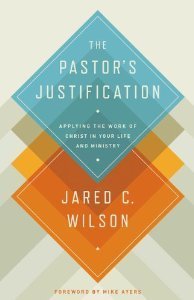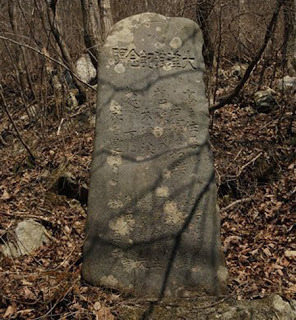Jared C. Wilson's Blog, page 69
May 1, 2013
May We Use Commentaries Written by Women?
Yes.
I love John Piper, as I assume has been evident over the years, but I found his answer to this question lacking at best and unhelpful at most. To some extent, he was directed to go to the biblical outline of gender roles by the phrasing of the question itself. But I think a better answer would be simply to step back, redirect, and consider the nature of a book. Any book. Any kind of book. Written by any author. Period. Female authors and male authors. Even Christian authors and non-Christian authors.
There is only one authoritative book. Every other book we can learn from and draw from and consider, testing all things its author teaches and clinging to whatever truth shakes out, even using what we see true in it in our life and ministry and public sermons.
I do subscribe to complementarianism, which means many things, one of which is that I agree with Dr. Piper that the Bible restricts pastoral authority in the local church to men. (Not just any men, of course, but those meeting the further qualifications for elder.) But the other key word in that phrase, the one that is not “men,” is “local.” Because of this, I don’t read any book, listen to any preaching, or otherwise gather any counsel outside of my church that I consider authoritative over me in the sense the Bible is concerned to restrict to only elders. Because I pastor a congregational church, all the members of my church, male and female, have in some sense authority over me. But only my elders have pastoral authority over me. This means that I don’t even read a John Piper book as if he has pastoral authority over me any more than I would read a Marva Dawn book as if she has pastoral authority over me. And I’ve read both and learned from both and used both.
Perhaps a better answer could have come from a better question. The better question is not “Is using a book by a woman a violation of the Bible’s restrictions on pastoral authority?” but “Is using any book a violation of the Bible’s restrictions on pastoral authority?” And the answer to both is “No.”
Now, of course, we ought to weigh some authors as more thoughtful, more faithful, more biblical than others, but I suppose that goes without saying.
April 25, 2013
John Newton’s Pastoral Poem
A Minister’s Burden
(John Newton)
What contradictions meet
In ministers’ employ!
It is a bitter sweet,
A sorrow full of joy:
No other post affords a place
For equal honor or disgrace.
Who can describe the pain
Which faithful preachers feel,
Constrained to speak in vain,
To hearts as hard as steel?
Or who can tell the pleasures felt,
When stubborn hearts begin to melt?
The Savior’s dying love,
The soul’s amazing worth,
Their utmost efforts move,
And draw their bowels forth;
They pray and strive, the rest departs,
Till Christ be formed in sinners’ hearts.
If some small hope appears,
They still are not content,
But with a jealous fear,
They watch for the event:
Too oft they find their hopes deceived.
Then how their inmost souls are grieved!
But when their pains succeed,
And from the tender blade
The ripening ears proceed,
Their toils are overpaid:
No harvest-joy can equal theirs,
To find the fruit of all their cares.
On what has now been sown,
Thy blessing, Lord, bestow;
The power is Thine alone,
To make it spring and grow:
Do Thou the gracious harvest raise,
And Thou alone shalt have the praise.
No Greater Love Has Anyone Than This. But This Other Thing Comes Pretty Close.
Trigger warning: Vomit.
Our oldest was up most of the night last night throwing up. She was not running a fever, so we are praying today it’s more something she ate than a bug of some kind. Becky stayed up with her, continually cleaning and emptying the receptacle kept by the bedside when sprinting to the toilet was a bridge too far. It’s a special thing, cleaning up somebody’s vomit.
Last night I was reminded of the first few months after our move to Vermont in fall of 2009. Because our house in Tennessee hadn’t sold (and still hasn’t, by the way, although that’s a saga for another time), Becky stayed there, keeping her job to help us keep covering the mortgage, while our girls and I made the long trek northwards. We were 9 long months apart, and it was heartbreaking for all of us. Our girls kept getting sick with various viruses and what-have-you in those months. It was bizarre and trying.
One night our friends Elder Dale and Mrs. Elder Dale were over keeping me company. The girls were already in bed. Our oldest wandered into the living room groggy-eyed to inform me that our youngest (who was in the top bunk) had thrown up her pepperoni pizza dinner (and more) all over the floor. From her prime position, she managed to get vomit on nearly everything.
And then something amazing happened. Elder Dale asked me, “How are you with this stuff?” I said, “Well, I’ve cleaned it up plenty of times but it’s always really rough. It’s all I can do to keep from throwing up myself.” Dale responded, “I’m pretty good with it.”
And then he proceeded to clean up my kids’ throw-up. And there was a lot of it. A lot of it on a lot of things. And this man who I’d only known for a few months cleaned up my daughter’s foul expectorant. It was at that point that I realized we were never leaving this church.
Elders who will clean up your kids’ vomit, who can find? They are more precious than rubies.
April 24, 2013
Holy vs. Holier Than Thou
How do we become holy without becoming ‘holier than thou’?
By actually becoming actually holy.
Holiness and holier-than-thou-ness aren’t parallel phenomena. They run on different tracks. If someone is growing in arrogance, pride, and self-righteousness, by definition they are not growing in holiness.
The problem arises in equating holiness with religious behavior. Holy people do obey God, of course. But the character of holiness, in which the Spirit does his progressive sanctifying work in our hearts (and therefore in our thoughts, speech, and actions), produces qualities of humility, gentleness, kindness, and self-control. Any arrogant fool can abstain from certain sins or give to charity and what-not. The Pharisees certainly did that, and all our legalistic contemporaries do too. But that is not real holiness. That is moralistic separatism or some such thing.
Therefore, it is impossible to become both holy and holier-than-thou. To grow in one, is to atrophy in the other.
But I am grateful that while I still struggle with a variety of sins, most especially the root sin of pride, I have God’s promise that he will complete the work he began in me, and that Jesus is both the author and the perfecter of my faith.
Conspiracy Theories and God’s Sovereignty
“Too many Christians are possessed with the idea that secret societies control the world. There have been countless theories that propagate this idea that the world economy and its political and social systems are controlled by a few evil and sinister men belonging to secret organizations that seek to rule the earth . . .
“Conspiracy believers . . . have taken a fact from history here, a fact from history there and have constructed distorted theories that secret people control everything that is happening in the world. Many believe and are caught up in the notion, creating an illusion that is very hard to get away from them.
“The Illuminati, the Council on Foreign Relations, the Masons, the Trilateral Commission, and the international bankers are some of those who, in the minds of many, seek the abolition of private property, family structure, organized religion, national governments, inheritance rights, and capitalism. Scary thoughts! Worse than the boogeyman I was afraid of as a kid.
“The facts demonstrate that Christian people who believe and embrace these kinds of theories are in the same boat as atheists, agnostics, and evolutionists. They have thrown God out of the picture as one who has lost control of his world . . . There are conspiracies; make no mistake about that. Unfortunately there is a dark side to the world. Throughout history there have been despots who have tried to seize control of governments and their citizens. I am positive this is the plan of Satan. However, never has there been one successful ploy over any great length of time because the heart and the mind of a person cannot be controlled forever. The heart and mind of a person belong to God.”
– from Sherman Smith’s Foreword to Gregory Camp’s Selling Fear: Conspiracy Theories and End-Times Paranoia (Baker: 1997), pp.9-10.
April 22, 2013
The Face of Evil, and of Love
 For the look on their faces bears witness against them; they proclaim their sin like Sodom; they do not hide it. Woe to them! For they have brought evil on themselves.
For the look on their faces bears witness against them; they proclaim their sin like Sodom; they do not hide it. Woe to them! For they have brought evil on themselves.
– Isaiah 3:9
What does an evil person look like? In the wake of the Boston Marathon Bombings, a not unexpected thing happened in the social media sleuthing for the perpetrators. As readers of popular sites like Reddit pored over photos of the marathon public, they began to highlight suspicious looking figures, and by “suspicious,” many meant bag-lugging figures of “Middle Eastern” countenance, or some other vague non-white descriptor. Some of course in both the mainstream and the alternative media insisted (hoped?) the bomber(s) would be white homegrown terrorists. But in both cases everyone sort of assumed they knew what evil looked like in this instance.
Then something strange happened. The photos of the (alleged) bombers were released by the FBI. Turns out the perpetrators looked a little like everybody’s diverging presumptions assumed they would. Tamerlan and Dzhokhar Tsarnaev weren’t homegrown, perhaps, but they were sort of home-raised. They were Muslims, yes, but not Middle Eastern. From Russia’s Caucasus region, these fellows are literally from the place from which we get the word “Caucasian.”
Is this what evil looks like?
 Tamerlan was a little easier for our know-it-all eyes to read. The older brother with more visibly evident militant leanings — YouTube clips, hearsay from attenders at the local mosque and even family, concerns from Moscow about terror links, that much-reported trip to Russia last year. But Dzhokhar? As my wife said, “He looks like just a baby.” Lots of people were echoing that sentiment. The very face of Dzhokhar — young, somewhat doe-eyed, moppy hair like every other teenage boy in my town and probably yours — demanded “patsy.” From the minute the two were identified, the speculation saw only his face and his place in the birth order and deduced he was coerced by his older brother, probably against his will, or duped somehow. Some suggested he was set up by the government. (No doubt they will continue to suggest this, but that’s for a post for another time.)
Tamerlan was a little easier for our know-it-all eyes to read. The older brother with more visibly evident militant leanings — YouTube clips, hearsay from attenders at the local mosque and even family, concerns from Moscow about terror links, that much-reported trip to Russia last year. But Dzhokhar? As my wife said, “He looks like just a baby.” Lots of people were echoing that sentiment. The very face of Dzhokhar — young, somewhat doe-eyed, moppy hair like every other teenage boy in my town and probably yours — demanded “patsy.” From the minute the two were identified, the speculation saw only his face and his place in the birth order and deduced he was coerced by his older brother, probably against his will, or duped somehow. Some suggested he was set up by the government. (No doubt they will continue to suggest this, but that’s for a post for another time.)
When the media began to interview Dzhokhar’s former teachers and current classmates and friends, the insistence became deafening: “He is not the type of person who would do this.” He’s laid back. He’s cool. He listens to rap music and drinks beer (plays beer pong, even!) and smokes pot and gets with girls, which means he is not a radical Muslim. Which means he’s not evil! Or so they’d say.
What exactly does evil look like again?
Certainly not like the typical college kid, right? But, then, I think we need only see what this college kid did in the immediate days after he set down a backpack near children in order to murder them. He went to the gym to work out. He went to a party. (Friends say nothing seemed out of the ordinary.) He tweeted.
I am inclined to think that even if you were coerced, duped, pressured to murder 3 innocent people (and a 4th a few days later) and injure many others, you would not act so nonchalant afterwards. Nonchalance about one’s evil actions is exactly the face of evil. And the idea that someone like a “chill” college kid could never murder anybody is simply ignorant. We know this from both biblical hamartology and real life. Just a few years doing pastoral counseling has reaffirmed for me that quote-unquote “normal” people can do some very terrible things. Just a few moments of heart introspection will affirm that I am — and you are — quite apt at murderous thoughts, at the very least.
What does evil look like? You and me.
 And then there’s this: Nobody is beyond hope. Nobody is beyond redemption. There is no sin so great that God’s gospel is not greater still. Make no mistake: God is holy and just. It is not graceless to suggest that Dzhokhar’s older brother has already begun his eternal damnation. But it is graceless to suggest that that is only what can await Dzhokhar himself. Can’t he who once persecuted you become your servant? As long as Dzhokhar is breathing, there is time to repent and believe. For he who knew no sin became terrorism that we might be called the righteousness of God. If that offends you, I don’t think you know what the face of evil looks like. Or the face of love.
And then there’s this: Nobody is beyond hope. Nobody is beyond redemption. There is no sin so great that God’s gospel is not greater still. Make no mistake: God is holy and just. It is not graceless to suggest that Dzhokhar’s older brother has already begun his eternal damnation. But it is graceless to suggest that that is only what can await Dzhokhar himself. Can’t he who once persecuted you become your servant? As long as Dzhokhar is breathing, there is time to repent and believe. For he who knew no sin became terrorism that we might be called the righteousness of God. If that offends you, I don’t think you know what the face of evil looks like. Or the face of love.
And such were some of you. But you were washed, you were sanctified, you were justified in the name of the Lord Jesus Christ and by the Spirit of our God.
– 1 Corinthians 6:11
Images
(bottom) Renaissance artist Albrecht Durer’s painting of Saint Paul the Apostle
(middle) media-shared image of Boston Marathon Bombing suspect Dzhokhar Tsarnaev
(top) National Geographic artist rendering based on historical scholarship of how Jesus of Nazareth likely looked.
April 17, 2013
Additional Thoughts on Video Preaching
Over at the TGC Voices blog today, Christopher Ash’s excellent piece on objections to video preaching is especially of note. I mean neither to steal Ash’s thunder nor to pile on my friends who employ video preaching, but I thought this an appropriate occasion to second the aversion. Below is a recycled post of mine from the archives. You will notice in the first line that even then I was trying to horn in on somebody else’s thoughts.
Thabiti Anyabwile has written a provocative piece on the multi-site church movement. It created a bit of a stir. As a way of shamelessly piggybacking off his post, I thought I’d collect my own thoughts — up to this point, scattered here and there — on the church multiplication strategy known as “video venues.”
First, a couple of disclaimers:
1) I would not word my opposition as strongly as Anyabwile’s. And my opposition is not really to the multi-site concept but to the use of video preaching (and video music) as the features of a worship service. There are quite a few churches that appear to do multi-site well, by which I mean, they feature live preaching, have dedicated elders shepherding a community rather than organizers attracting a crowd, and they function for the most part like church plants. I think some multi-site approaches are viable means of a church’s gospel mission. In any event, my aversion to the video venue multi-site movement is not morally framed. What I mean is, I am not saying video venue multi-site is sinful (or even unbiblical). I am not speaking to its wrongness per se, but rather hope to suggest it is not wise. Sort of a “not everything that is permissible is profitable” kind of thing.
2) Secondly, some of my best friends are multi-site pastors. And they are all fantastic, humble, godly men who love Jesus, love the Church, and love seeing lost people get saved. I am not against them.
So: why I’m averse to video venue multi-site whatchamacalits:
1) I do not think it is wise, in our consumer culture, to go down the path of continued un-incarnation.
This applies to the “virtual church” phenomenon in general, as well. In a day when the idolatry of the self and the mass production of “beauty” and the disconnection of individuals from each other are daily, constant, pernicious struggles, I don’t think the church can afford to un-incarnate anything, much less its preaching. Video is by definition un-incarnational.
2) Video venues are not counter-cultural.
You can go a lot of ways with this thinking, sometimes overboard, but the kingdom of God is supposed to run counter to the way of the world. What I see in the worst examples of the video venue movement is just more accommodation of cultural values begun in the modern church’s idolization of “relevancy” twenty years or so ago. All churches should be seeker sensitive (in the best sense of the phrase), by which I mean seeker comprehensible and seeker welcoming, and all churches should be good students of the culture and good workers at contextualization, but there is a line between contextualizing and accommodating, and I think video venues often cross the line. At what point do we look at cultural trends not as things to mirror and ape but to challenge and subvert? Technology, as some insist, may be neutral, but that does not automatically mean that all technological tools are suitable for uncritical ecclesiological appropriation. I am afraid many churches have moved from “leveraging technology” to merely mirroring whatever they think the world finds appealing or slick.
3) Video venues can reinforce the kind of pragmatism that has not served the church well at any point.
We are just now seeing the data revealing the fruit of the attractional paradigm, and it is not good. Big churches are increasing, but the numbers of Christians are not. By some accounts, all debatable of course, the most churched states in the nation are in danger of soon-coming evangelical decline. Much of the video venue stuff is clearly from the same school of thought as the ecclesiological trajectory we are only now discovering was wrongheaded and, moreover, impotent to grow disciples.
4) A video preacher can’t be shot in the face.
5) Video venues assist the idolization of and over-reliance on preachers.
This is something Matt Chandler, himself the pastor of a church using video venues, brought up: “Twenty years from now are there fifteen preachers in the United States?”
There are a lot of sub-points under this general point:
- Would your church be able to open its satellite campus if the main pastor was not the one doing the preaching? If not, doesn’t that say something important about the viability of your church and where it is centered?
- What happens if your pastor gets hit by a bus? Would your church collapse? Do you lose major attendees? Do satellite campuses have to close down? (To be fair, this is not just a problem with video venue churches, but with any church unhealthily centered on the personality of the preaching pastor.)
- What happens to the men in your church with preaching gifts? Where do they go to exercise their gift and bless their church family? (Somewhere else, that’s where.) How do video venues develop future pastors and preachers?)
I understand that God raises up certain men of unusual anointing to lead in unique and higher-profiled ways. But what does it say about the gospel if, where the rubber meets the road, we minister as if it requires a certain level of homiletical talent to do its work?
Just some bullet points. I hope they are received in the spirit with which they are given: not as having it all figured out, but just as having some concerns. I am assuming common ground between all of us is that we want to see the fruitfulness of the Church and Christ glorified by it.
April 16, 2013
Endorsements for The Pastor’s Justification
 I hope my upcoming book The Pastor’s Justification: Applying the Work of Christ in Your Life and Ministry will be a blessing and a help to those who read it. The strategy I encouraged with Crossway in terms of endorsements for this project was that “less is more.” The good words are now in, and I’m eager to share them with you. Of course I hope they will inspire you to get this book for the ministers in your life, if not for yourself.
I hope my upcoming book The Pastor’s Justification: Applying the Work of Christ in Your Life and Ministry will be a blessing and a help to those who read it. The strategy I encouraged with Crossway in terms of endorsements for this project was that “less is more.” The good words are now in, and I’m eager to share them with you. Of course I hope they will inspire you to get this book for the ministers in your life, if not for yourself.
“Jared Wilson is one of my favorite thinkers. He writes with deep conviction, and I have been moved to tears at his robust sense of God and his glorious gospel. Of the books he has written, this one is especially edifying to me. Jared writes from the trenches where he is shepherding, leading, doing weddings, and doing funerals. He knows the highs and lows of our calling. His conviction, passion, and wit pour out onto the page as he shepherds those of us who are shepherding the flock.”
— Matt Chandler, Pastor, The Village Church; President, Acts 29 Church Planting Network
“It ought to go without saying that pastors who preach the gospel need the gospel desperately themselves—but it doesn’t. In The Pastor’s Justification, Jared Wilson boldly reminds ministers where their true measure of success and fulfillment is found. This book will help shepherd shepherds back to the confidence and humility found only in Jesus.”
— Ed Stetzer, President, LifeWay Research; author, Subversive Kingdom
“Nothing has been more frustrating as a pastor than proclaiming the person and work of Christ in a sermon to my church and then realizing I have not applied the gospel to my own heart and life the whole week. Jared is a welcomed guide for pastors who want off of the performance treadmill.”
— Darrin Patrick, Pastor, The Journey, St. Louis, Missouri; author, For the City and Church Planter: The Man, the Message, the Mission
“Why do so many pastors feel burned out, burned up, and simply burned? We allow ourselves to be shaped by the many pseudogospels rooted in our guilt-driven, shame-based, performance-oriented approaches to ministry. The Pastor’s Justification by Jared Wilson exposes these idols and invites us to rediscover the gospel of grace and its application for pastors and church leaders. Jared exercises his considerable pastoral compassion and skill to offer a fresh, much-needed word for burned-out pastors.”
— Daniel Montgomery, Pastor, Sojourn Community Church, Louisville, Kentucky; co-author, Faithmapping
“Pastor, you are not alone—your feelings of loneliness, fear, insecurity, and mediocrity are shared by all pastors, to one degree or another. Pastors need other faithful shepherds to preach to us, admonish us, comfort us, and point us to Jesus. We need others to come alongside us as we look not primarily for better techniques or bigger churches, but to the unity, safety, security, and justification that we have in our Chief Shepherd, Jesus Christ. This book will engage not only your intellect, but your motives, your idols, and your dreams. Every congregation should want their pastor to read this book, and every pastor will want his congregation to do the same.”
— Burk Parsons, Copastor, Saint Andrew’s Chapel, Sanford, Florida; Editor, Tabletalk magazine
What Does God Say About the Boston Bombings?
It is a dangerous thing to speak for God, but he has spoken for himself about such atrocities. I for one will not dare to say more than the following, but it’s quite enough, really, especially for those of us who lack the energy at this time to say much:
1. The world is broken, and evil is real.
2. I know how you feel. I weep with you.
3. I am just, and I will punish this evil.
4. Repent and believe.
5. Be not afraid.
Please continue in prayer for your friends and mine in the great city of Boston.
April 3, 2013
No Further Than Our Fathers
 And now, O sons, listen to me,and do not depart from the words of my mouth.
And now, O sons, listen to me,and do not depart from the words of my mouth.
– Proverbs 5:7
As we cling doggedly to the theology our fathers fought for and passed down to us in good faith, the doctrinal dilettantes of the day nag, “What ever happened to semper reformanda?”, positing evolving boundaries, a flexible orthodoxy, working on the assumption that our position in history gives us a better understanding of what the Bible really says.
The way we play with the shape of evangelical theology today arises from straight-up chronological snobbery.
The New York Times noted this historical item related to the most recent tsunami and devastation in Japan:
The stone tablet has stood on this forested hillside since before they were born, but the villagers have faithfully obeyed the stark warning carved on its weathered face: “Do not build your homes below this point!”Residents say this injunction from their ancestors kept their tiny village of 11 households safely out of reach of the deadly tsunami last month that wiped out hundreds of miles of Japanese coast and rose to record heights near here. The waves stopped just 300 feet below the stone.
“They knew the horrors of tsunamis, so they erected that stone to warn us,” said Tamishige Kimura, 64, the village leader of Aneyoshi.
Hundreds of so-called tsunami stones, some more than six centuries old, dot the coast of Japan, silent testimony to the past destruction that these lethal waves have frequented upon this earthquake-prone nation. But modern Japan, confident that advanced technology and higher seawalls would protect vulnerable areas, came to forget or ignore these ancient warnings, dooming it to repeat bitter experiences when the recent tsunami struck.
Their ancestors knew what they were talking about. They had learned the hard way. And they erected markers: Don’t build past this point. But we post-postmoderns are arrogant. We know better. We are smarter, more enlightened. And we have to accommodate more and more people. So we ignore the markers. We want to grow!
We must be reminded that semper reformanda does not mean “always morphing.” It does not mean that the faith is ever changing, progressing into something better. In many respects, to be always reforming is to be always returning to the gospel. It is to be continually sloughing off the baggage of doctrinal add-ons and distractions, cutting out the ever-rising innovations, theological and otherwise. To be always reforming is to keep going back to the ancient markers in the face of constant temptation and taunting from those who’d have us play with heterodoxy ever-newly. Let us keep contending, keep trusting, keep returning.
Follow the pattern of the sound words that you have heard from me, in the faith and love that are in Christ Jesus. By the Holy Spirit who dwells within us, guard the good deposit entrusted to you.
– 2 Timothy 1:13-14



